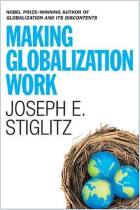Recommendation
Jagdish Bhagwati is a true believer in the righteousness of international trade, and in this pro-globalization work, he takes a tone of nearly evangelical fervor. This tactic is likely to please those who agree with him, but it’s unlikely to win over sceptics. Bhagwati makes no attempt to hide his disdain for the patchouli-scented protesters who disagree with him, and he spends much of this book serving up their flimsiest arguments and then knocking them down. Of course, he also offers plenty of persuasive points, such as a review of research showing that multinationals that set up shop in poor nations pay more than their workers would receive from other employers. At his worst, Bhagwati makes the reptilian argument that mothers who leave behind their children for jobs in rich countries are simply making a logical choice, never mind the wrenching emotions that accompany such a move. At his best, he advocates for a safety net in poor nations and for a kinder, gentler form of globalization. getAbstract recommends this book to readers seeking an in-depth study of the pro-globalization mind-set.
Summary
About the Author
Jagdish Bhagwati is a professor at Columbia University and a senior fellow in international economics at the Council on Foreign Relations.
















Comment on this summary